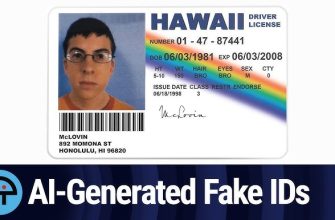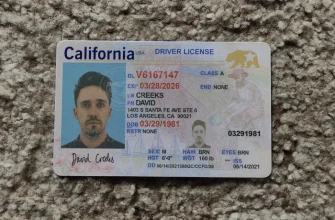The creation of fake documents, whether for identity theft, financial fraud, or other deceptive purposes, is a serious offense that carries significant legal consequences. As technology advances, law enforcement agencies and legal systems have become increasingly adept at identifying and prosecuting individuals involved in the production and use of counterfeit documentation. This article explores the legal implications and potential penalties for creating fake documents.
- Forgery Laws:a. Definition: Forgery, the act of creating or altering documents with the intent to deceive, is a criminal offense in many jurisdictions. This can include forging identification cards, passports, bank documents, academic certificates, and other official paperwork.b. Penalties: Penalties for forgery vary but often include fines, imprisonment, or a combination of both. The severity of the punishment may depend on factors such as the type of document forged, the intent behind the forgery, and whether the offender has a history of similar offenses.
- Identity Theft Legislation:a. Criminal Offense: Creating or using fake documents for identity theft purposes is a serious crime. Identity theft legislation is designed to protect individuals from the misuse of their personal information, and engaging in such activities can lead to severe legal consequences.b. Penalties: Penalties for identity theft vary by jurisdiction but can include fines, restitution to victims, and substantial prison sentences. Repeat offenders or those involved in large-scale identity theft operations may face more severe consequences.
- Fraud Laws:a. Wire Fraud and Mail Fraud: Utilizing fake documents to commit fraud, whether in financial transactions or other contexts, is often addressed under fraud laws. Charges related to wire fraud, mail fraud, or other forms of deception may apply, with penalties that can include fines, imprisonment, or both.b. Financial Consequences: Individuals convicted of fraud may be required to pay restitution to victims, covering financial losses incurred due to the use of fake documents. This adds a financial burden on top of any criminal penalties imposed.
- Counterfeiting Laws:a. Targeting Official Documents: Counterfeiting laws specifically target the replication or alteration of official documents, currency, or valuable instruments. Engaging in activities that violate these laws can lead to substantial legal consequences, reflecting the potential economic impact and harm to public trust.b. Severity of Penalties: Counterfeiting laws are often enforced rigorously due to the serious implications of producing fake official documents. Offenders may face lengthy prison sentences and hefty fines to deter such activities.
- Cybercrime Legislation:a. Digital Forgeries: With the rise of digital technology, cybercrime legislation addresses the creation and distribution of fake documents online. Using technology to forge digital documents or engage in online fraud can lead to charges under these laws.b. International Cooperation: The global nature of cybercrime often requires international cooperation for effective prosecution. Offenders may face extradition and charges in multiple jurisdictions, amplifying the legal consequences.
- Legal Repercussions in Civil Cases:a. Civil Lawsuits: Individuals and businesses harmed by the creation and use of fake documents may pursue civil lawsuits against the perpetrators. This can result in financial damages awarded to the victims in addition to any criminal penalties.b. Liability for Damages: Individuals found liable in civil cases may be required to compensate victims for financial losses, legal expenses, and other damages resulting from the use of fake documents.
The legal implications of creating fake documents are far-reaching and severe. Individuals involved in forgery, identity theft, or fraud may find themselves facing not only criminal charges but also substantial fines, imprisonment, and civil liabilities. As legal systems evolve and technology enables more sophisticated means of detection, the risk of being caught and the severity of consequences continue to increase. To avoid the serious legal ramifications of creating fake documents, individuals are strongly advised to adhere to the law and ethical standards, recognizing the potential harm and legal liabilities associated with such activities.





